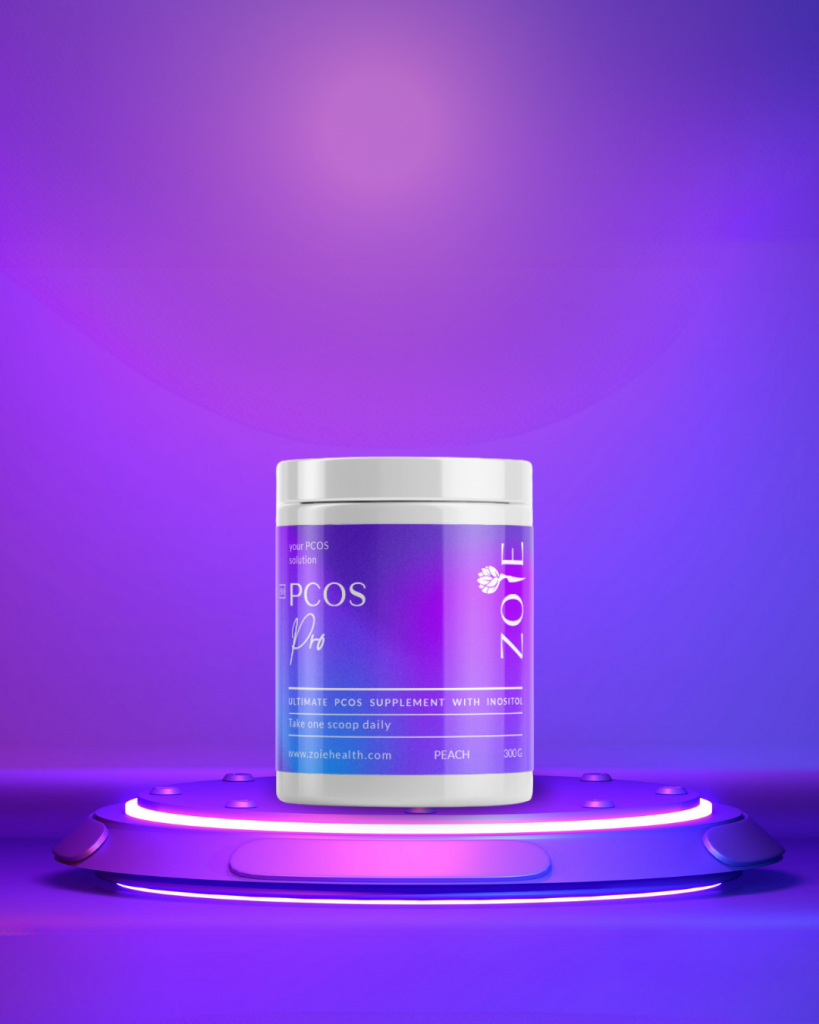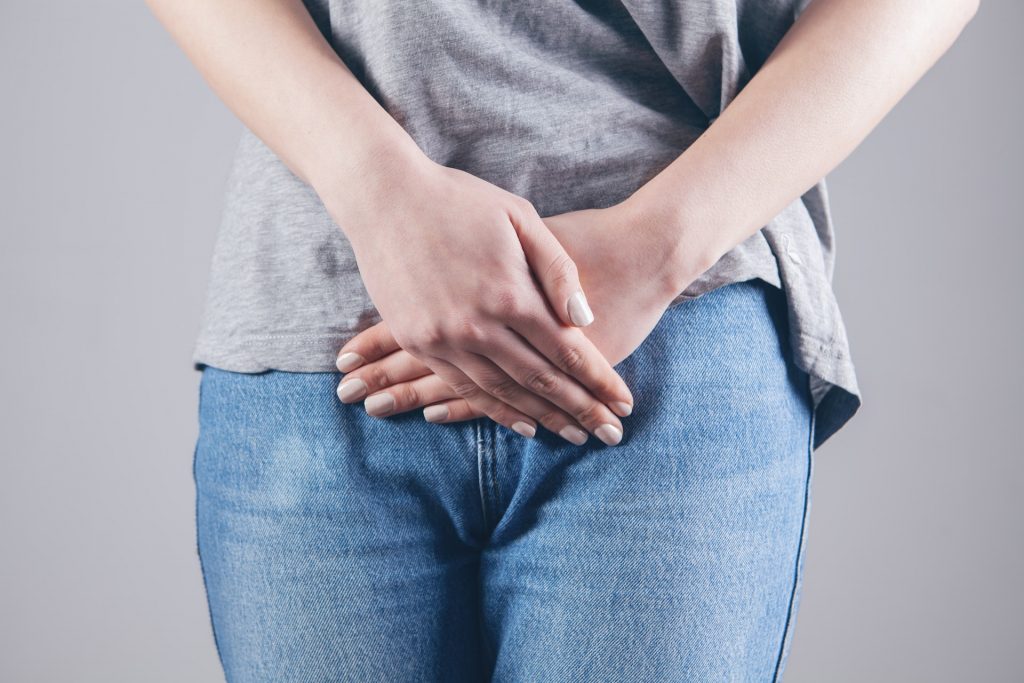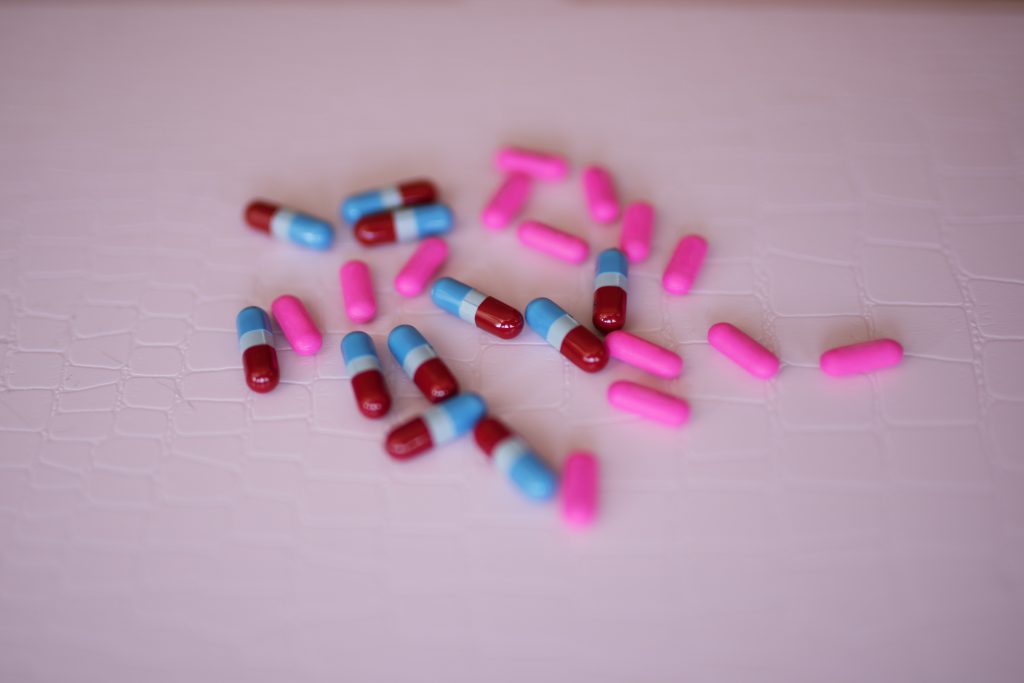Unlocking the Benefits of PCOS Pro for a Healthier You

By Ammarah Seedat Polycystic Ovary Syndrome (PCOS) affects millions of women worldwide, causing a myriad of symptoms that impact daily life and overall health. From insulin resistance to fertility challenges, managing PCOS requires a comprehensive approach. Enter PCOS Pro, a powerful supplement designed to address the multifaceted needs of women with PCOS. Let’s explore the benefits and key ingredients that make PCOS Pro an essential addition to your wellness routine. Understanding PCOS Pro PCOS Pro is formulated to target the root causes and symptoms of PCOS, offering a blend of essential vitamins, minerals, and natural extracts. Key ingredients such as Myo-Inositol and D-Chiro Inositol improve insulin sensitivity and restore ovarian activity, enhancing fertility. Magnesium and Chromium help manage insulin resistance and blood sugar levels, while Vitamin B12 and Omega-3 boost energy and support metabolic health. Folic Acid promotes ovulation, and Vitamin D addresses deficiencies common in women with PCOS. Additionally, Marula extract aids digestion and provides essential minerals for bone health, contributing to overall well-being. The Problem PCOS Pro Aims to Solve Polycystic Ovary Syndrome (PCOS) is a prevalent endocrine disorder affecting approximately 10% of women of reproductive age worldwide. This condition is characterised by a variety of symptoms, including insulin resistance, weight gain, irregular menstrual cycles, and infertility. According to studies, about 70% of women with PCOS suffer from insulin resistance, which significantly increases the risk of developing type 2 diabetes. Additionally, around 50% of women with PCOS experience overweight or obesity, further exacerbating metabolic and reproductive health issues. The emotional and psychological toll of managing PCOS symptoms can be profound, leading to anxiety and depression in many women. PCOS Pro is specifically formulated to address these widespread and impactful problems by targeting insulin resistance, enhancing fertility, and improving overall metabolic health, providing a holistic approach to managing and mitigating the effects of PCOS. Read: How Can You Tell If You Have PCOS?, PCOS: Breaking down the Emotional Walls, The Top 4 Benefits of PCOS Pro Community and Giving Back At PCOS Pro, we believe in the power of community and the importance of giving back. We have created a supportive community where women with PCOS can connect, share their experiences, and find encouragement. Through our online forums and social media platforms, we aim to provide a space for women to support each other and access valuable resources. Additionally, a portion of the proceeds from PCOS Pro sales goes towards funding PCOS research and supporting organisations dedicated to women’s health. By choosing PCOS Pro, you are not only taking a step towards better health for yourself but also contributing to a larger cause that benefits women everywhere. Expertly Formulated for Your Health All Zoie Health supplements, including PCOS Pro, are expertly formulated by doctors, pharmacists, dietitians, and OB-GYNs. They are sugar-free and made from natural ingredients, ensuring you receive only the best for your health. With every purchase of PCOS Pro, you gain free access to the Zoie Health community and resources, providing you with continuous support on your wellness journey. Furthermore, we donate a portion of the profit to women’s health NGOs, amplifying our commitment to improving women’s health globally. Embrace a Healthier You with PCOS Pro Managing PCOS can be challenging, but with the right support, you can lead a healthier and more balanced life. PCOS Pro offers a comprehensive solution to address the unique needs of women with PCOS, helping to regulate metabolism, enhance fertility, and improve energy levels. Incorporate PCOS Pro into your daily routine and unlock the benefits of a well-rounded approach to managing PCOS. Take the first step towards a healthier you with PCOS Pro today! About Zoie Health Zoie Health is at the forefront of women’s wellness, offering quality, affordable, and accessible supplements tailored to the unique health needs of women. With a focus on synergy, Zoie Health’s products are designed to work together, providing your body with the comprehensive support it needs to thrive. With our online Zoie Shop and Pharmacy, our unique virtual consultations, and vast communities of women, we strive to provide good quality healthcare to underserved populations.
Period tracking apps: What are the benefits & how to use one

When they say there’s an app for everything, they mean it! Period tracking apps are quickly becoming one of the most helpful tools when it comes to managing your cycle. Find out what period tracking apps are, the benefits and how you can start using one today. Read more: Is this normal? Period FAQs and their answers What does it do? As you can probably guess, period tracking apps help you to keep track of your period but that’s not all they can be used for. They can help you to monitor every part of your cycle so you can better understand your unique body and reproductive system better. Shop now: Zoie Health period care products What are the benefits? Since each woman’s cycle is unique, tracking your individual cycle will help you to better understand what’s happening in your body. Using a period tracking app simply makes the process easier. With a period tracking app, you can: A period tracking app is a helpful tool for monitoring your cycle but doesn’t replace a real healthcare professional so contact your doctor if you have any health concerns with regards to your cycle. How to use it Like most apps, period tracking apps should guide you on how to use them effectively. When starting off, you should input all the requested information about your last period and continue to do this every month. After using this for a few months, the app will be able to tell you useful information about your cycle like how long your period and overall cycle are, when your fertility window is and when you could expect to have certain symptoms. If you have questions regarding your period or fertility, book a hassle-free virtual consultation with a Zoie Health professional by clicking here. Sources: Mayo Clinic, Planned Parenthood, Office on Women’s Health, National Health Service (NHS)
Heavy periods? You should check your iron levels

It’s normal for periods to last for 3-7 days, but if you are experiencing heavy periods there may be an underlying health condition causing this. Losing a lot of blood during your period can lead to low iron levels which can negatively impact your health. We want you to better understand what causes this and what can be done about it. What causes this? Women who experience heavy periods, also known as menorrhagia, often bleed more heavily or for longer. This means the body is losing large amounts of blood and tissue filled with iron. Over time, this can lead to the iron store in the body being depleted and causing an iron deficiency or even anemia. There are multiple things that could cause you to have heavy periods including: Read more: How to know if you have PCOS, endometriosis or both? What can I do to improve my iron levels? Introducing more iron into your diet is one of the best ways to increase iron levels in your body. Try eating foods that contain higher amount of iron in them, some examples are: Supplementing with iron tablets is also a convenient and stable way of making sure you’re getting enough iron daily. Combining an iron supplement with vitamin C, either in a supplement form or in your diet, can help with absorption. Read more: 5 reasons you should start taking the right supplements today + Quiz If you are experiencing heavy periods or are just feeling uncertain about your period, speaking with a women’s healthcare professional can help you to find the right diagnosis and treatment for you. To book a virtual consultation with a Zoie Health professional, click here. Sources: Mayo Clinic, American College of Obstetricians and Gynecologists, National Institute of Health, U.S. Department of Health and Human Services
Why you should use an online pharmacy according to this pharmacist

Life’s busy – we all know that. Who has the time to stand in long lines to collect much-needed medication when we have so many other important things on our plate? That’s why Jani van der Hoven (M.Phil Clinical Pharmacology), one of our resident pharmacists, wants you to know about Zoie Health’s online pharmacy. Here’s how our online pharmacy can benefit you and how you can use it. The benefits: “Members can easily order medications and healthcare products from the comfort of their own home or office, saving time and effort. This is especially beneficial for busy professionals, parents, or those with tight schedules who find it difficult to visit a pharmacy during a busy day”, says Jani van der Hoven. Read more: The number 1 postpartum guide for new moms Some of the other benefits of using an online pharmacy include: According to Jani van der Hoven, “Zoie Health’s online pharmacy is designed to offer you convenience, accessibility, and expert support. We strive to provide you with a personalised experience, ensuring that your health is our top priority.” Read more: 5 reasons you should start taking the right supplements today + Quiz The process: These are the quick and simple steps for using the Zoie Health online pharmacy: “If you need any advice or guidance regarding over-the-counter medication, a pharmacist will be available to assist you. We are here to ensure that you make informed decisions and select the right medication for your needs”, say Jani van der Hoven. Click here to visit Zoie Health’s online pharmacy today. If you would like to book a hassle-free virtual consultation with Zoie Health’s experts, click here.
Is this normal? Period FAQs and their answers

Just like women, periods aren’t one-size-fits-all yet there are many period FAQs that we may not want to ask out loud. Even when we do, we may not get the best answers and can feel even more confused than before. When women better understand their periods and what’s going on with their cycle, they can feel empowered by that knowledge and know how they can seek out the help they need when they need it. Speak to a qualified healthcare provider about all you period FAQs so you can get the best treatment for you. Here’s our list of period FAQs and the answers every woman should know about: How do I know if my menstrual cycle is a normal length? A menstrual cycle typically lasts between 21 to 35 days, with an average cycle length of 28 days. One cycle is usually counted as the number of days between the start of your period until the start of your next period. In order to find out how long your period is and to see if your cycle is regular, tracking your menstrual cycle is important. Start by marking the first day of your period on a calendar and the first day of your next period. Then count the number of days between these two dates to determine your cycle length. Do this over several months and see how many days each cycle is and if it’s consistent. Many women are now using period tracking apps in order to keep track of your menstrual cycle and to see when they are becoming irregular. Monitoring your cycle is a great tool for understanding your reproductive health and knowing when something could be wrong. What are normal PMS symptoms and how can I manage them? Premenstrual syndrome (commonly known as PMS) is a group of physical and emotional symptoms that happen in the days leading up to your period. Symptoms of PMS usually include: Eating more nutritious foods, getting regular exercise, and using stress management techniques like meditation can help to alleviate these symptoms. If you are experiencing more severe symptoms, you can talk to your healthcare provider about this period FAQ and what type of medication they would recommend to manage your symptoms. Read more: PMDD: What is it exactly? Why do I experience cramps during my period? Menstrual cramps are caused when the muscles around uterus begin contracting in order to shed its lining, leading to you having a period. The uterus does the same thing during childbirth, to help deliver the baby as well as the placenta. This is a normal symptom that many women experience during their period and while they can be uncomfortable, they should not be extremely painful to the point that you cannot do daily activities. My menstrual cramps are painful, how can I manage them? Dysmenorrhea is a medical name used to describe painful menstrual cramps. If you are having painful cramps during your cycle, taking over-the-counter painkillers, such as ibuprofen or paracetamol, can help to lessen the pain. Other options include applying heat to the lower abdomen where you can feel the cramps as well as getting regular exercise. Both of these options can help to alleviate the pain caused by cramping. Shop now: Zoie Health Period Care products Should I be concerned if my period blood is a different colour than usual? Period blood can range in colour from bright red to dark brown. This usually depends on the age of the blood and how long it’s been in your body for. A brighter shade is usually fresh blood while darker tones indicate that the blood is older. However, if your period blood is an unusual colour and/or has a foul smell, it may be a sign of an infection or another medical condition. If this happens, contact your healthcare provider to find out what treatment you need. Can period blood be a different texture or consistency? Yes, period blood can vary in both texture and consistency. Sometimes it may be thick and clumpy or thin and watery. Just like with a significant change to colour, if you experience significant changes in the texture or consistency of your period blood, speak with your healthcare provider about this period FAQ to find out what may be the cause of these changes and how you can treat any underlying conditions. When should I be concerned about heavy bleeding during my period? Heavy or prolonged bleeding during your period is known as menorrhagia. You may have menorrhagia if you need to change your tampon or pad very frequently or if you are passing blood clots larger than a R2 coin. If you experience heavy bleeding during your period, it may be linked to an underlying medical condition such as fibroids or endometriosis. Heavy menstrual bleeding can also affect the iron levels in your blood and can cause anemia. This is a condition when there is a shortage of red blood cells in the body. Symptoms of anemia include: If you have heavy periods and are experiencing the above symptoms, you may want to speak to your doctor about taking the correct kinds of supplements and medications for your needs. Shop now: Zoie Health Vitamins & Supplements Can I still get pregnant while on my period? While it is less likely to happen then while you are ovulating, it is possible to get pregnant while on your period. This is especially true if you tend to have a shorter menstrual cycle. This is because sperm can stay alive for up to five days inside the uterus and cervix. So if you have sex near the end of your period and then you begin to ovulate shortly after that, you have a higher chance of becoming pregnant. If you do not want to become pregnant, it is important that you and your sex partner use contraceptives correctly no matter where you are in your cycle. Read more: Which contraceptive option is right for you? I’ve missed my
PMDD: What is it exactly?

Who is affected? Premenstrual dysphoric disorder, commonly known as PMDD, is a severe type of premenstrual syndrome (PMS). About 5% of women globally are diagnosed with this condition and is more often linked to women who have a personal or family history of depression, anxiety, and/or other mood disorders. This chronic health condition causes significant emotional and physical symptoms which interfere with the daily lifestyle, activities and relationships of women diagnosed with PMDD. Read more: Tools to help manage your mental health What are the symptoms? Common PMDD symptoms include: These symptoms need to happen consistently in the second half of your menstrual cycle and are severe enough to impact the quality of daily activities and relationships in order to be diagnosed with PMDD. The symptoms also usually go away a few days after the start of your period. What are treatment options? Treatments for PMDD may include lifestyle changes, medications, or a combination of both. Examples of lifestyle changes can include: Some women choose to use medications to help relieve some of the physical symptoms. These can include: While PMDD is a serious condition, it’s important to remember that, with the right treatment plan and professional care, many women are able to manage and reduce their symptoms and still experience an excellent quality of life. Shop now: Zoie Health’s period care products How do I get diagnosed? If you think you may have PMDD, don’t hesitate to talk to your healthcare provider so you can receive the correct diagnosis, treatment plan and care that you need. Zoie Health’s expert healthcare professionals are ready to help you, click here to book your virtual consultation today. Sources: Zoie Health medical experts, American College of Obstetricians and Gynecologists, National Institute of Mental Health, Mayo Clinic
Erectile Dysfunction: Simple Ways To Help Your Man

Sexual dysfunction is a common problem that can affect both men and women, but it is particularly prevalent among men. Male sexual dysfunction can manifest in various ways, but there are ways to help the issue.
What exactly an abortion in South Africa entails and where to get one (safely)

Globally, abortions are considered an essential health service. While it’s not an easy decision to make, you should feel empowered in the rights and services offered in South Africa for safe abortions.
Gonorrhoea: Here’s The Latest, Plus What To Know About This STI

Estimates show that every year around two million people in the country get infected with the gonorrhoea bacterium, which could be an underestimate because most women don’t show any symptoms. Here’s what to know.
How To Conceive With Endometriosis: A Helpful Guide

Trying to conceive with endometriosis? The disease can be debilitating, but there’s hope. Here’s what you need to know.

